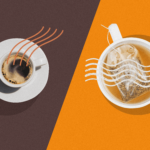We’ve all been there: swamped with deadlines, overwhelmed with multiple tasks, and exhausted by never-ending assignments. Whether it’s a looming deadline, a major project, or the daily grind, staying productive when we’re stressed feels like an uphill battle.
Taking care of yourself is key to managing work stress effectively, says Ashley Peña, LCSW, the executive director at the mental health care center, Mission Connection. “Having the right tools to focus on your well-being can directly support how you manage stress.“
But what does this self-care look like? We tagged some mental health experts and got their recommendations on the best stress-relief strategies that can help improve your work productivity.
At a Glance
Stress and work form a vicious cycle that throws your productivity off track.
Prioritizing tasks, compartmentalizing projects, setting realistic deadlines, and managing time efficiently can help you stay on top of your workload and be productive when you’re uber stressed.
However, if you don’t have a healthy work-life balance, no amount of project management can prevent burnout.
How Stress Impacts Work (and Vice Versa)
Stress and work have a bidirectional relationship, where each can significantly impact the other. Let’s take a look at the ways stress affects our work and how work can contribute to our stress levels.
How Stress Impacts Work
Stress impacts our work depending on the level of stress we’re experiencing, says Jenna Nielsen, MSW, LCSW, a therapist at ADHDAdvisor. “A small amount of stress may make our work better or more valuable; whereas, high stress typically causes us to make mistakes, become overwhelmed, or feel incapable of the job,” she says.
Peña explains our body releases hormones like cortisol, norepinephrine, and adrenaline when we’re stressed and these hormones can affect our work by causing emotional fluctuations, irritability, and difficulty concentrating. “The higher the stress, the more these hormones are released, leading to more noticeable side effects,” she adds.
According to research, these are some of the ways that stress can affect our performance at work:
- Decreased productivity: Stress can impair our focus, concentration, and decision-making abilities, leading to lower productivity.
- Increased errors: When we’re stressed, we’re more prone to making mistakes and oversights, affecting the quality of our work.
- Poor communication: Stress can make us irritable and less empathetic, hindering collaboration and teamwork.
- Burnout: Chronic stress can lead to burnout, which is characterized by extreme exhaustion, reduced motivation, and an inability to function.
- Absenteeism: Physical and mental health issues caused by stress can lead to increased sick days.
How Work Causes Stress
On the other hand, these are some of the ways that our work might contribute to our stress levels:
- Excessive workload: A high-stress job, an excessive workload, or unrealistic expectations can create significant stress.
- Poor work-life balance: All work and no time to relax can affect our mental and physical well-being, causing us to be chronically stressed out.
- Job insecurity: Layoffs and the fear that our head is next on the chopping block can be a major stressor that takes a toll on our performance.
- Negative relationships: Conflict with our colleagues or managers can increase our stress levels.
- Workplace environment: A toxic or unsupportive work environment can heighten stress levels. Issues like poor management, office politics, layoffs, bullying, harassment, or a lack of collaboration can contribute to a stressful and unhealthy atmosphere.
How to Stay Productive
Staying on top of your workload can help you manage your stress levels and improve your productivity. These are some strategies that can help:
- Create a schedule: Plan your day with specific time blocks for each task. Include short breaks for rest and recharge.
- Prioritize: List your tasks in order of priority on an Eisenhower Matrix and focus on the most critical tasks first. You’ll feel less stressed when the more urgent stuff is out of the way.
- Break it down: Divide larger tasks into smaller, more manageable chunks to make your workload feel less overwhelming. Completing smaller tasks and progressing steadily toward your goal will help boost your confidence.
- Establish deadlines: Set realistic deadlines to avoid procrastination and stay on track.
- Manage your time: Use time-management techniques like the Pomodoro Technique to help you get things done efficiently.
- Avoid multitasking: Focus on one task at a time. Avoid multitasking as trying to do too many things at once can bump up your stress levels and reduce your efficiency.
- Declutter: Keeping your workspace neat, organized, and uncluttered can reduce distractions and improve your focus.
- Delegate tasks: Don’t be afraid to delegate tasks to colleagues or team members when possible. This can help reduce your workload.
- Take a break: If you see your work quality decreasing, it’s time to take a break, says Nielsen. It might sound counterintuitive but breaks can refresh your mind and give you renewed focus.
- Take a mental health day: If your stress levels are too high and you can’t function, take a mental health day to relax and recharge your batteries.
Strategies to Calm Down Quickly
When stress hits hard at work, you need to be able to calm down quickly in order to regain your focus. These are some strategies that may help:
- Deep breathing: Take slow, deep breaths. Inhale through your nose for a count of four, hold for four counts, and exhale through your mouth for another four. Repeat this a few times to lower your heart rate and relax your mind.
- Counting: Distract your mind by counting backwards from 100.
- Meditation: Spend a few minutes meditating. Close your eyes and focus on breathing, putting aside any intrusive thoughts.
- Music: Listen to soothing music that calms you down. Choose something instrumental or with a slow tempo.
- Muscle relaxation: Progressive muscle relaxation helps release stored stress in the body. Tense and release different muscle groups, starting from your toes and working your way up.
- Grounding: Anchor yourself in the present moment with the 5-4-3-2-1 technique. This involves looking around you and identifying five things you can see, four things you can touch, three things you can hear, two things you can smell, and one thing you can taste.
- Mindful observation: Pick an object and spend a few minutes observing it closely. Notice its shape, color, texture, and any other details.
- Visualization: Close your eyes and visualize a place where you feel calm and happy, such as a beach, forest, or a cozy room. Imagine yourself there, focusing on the sights, sounds, and feelings associated with that place.
- Walking: Leave your desk and take a short walk, preferably outside. A change of scenery and a little fresh air goes a long way.
- Aromatherapy: If possible, use a few drops of calming essential oils like lavender or chamomile on a tissue or diffuser. The soothing scent can help you relax.
How to Tell Your Manager You’re Struggling
Sometimes meditation techniques or a well-planned task list aren’t enough to alleviate workplace stress and you might have to get your manager involved. It is daunting? Abso-freaking-lutely. But chatting with your boss is the first step towards getting the support you need.
Once your manager knows about your issues, they can collaborate with you to find solutions like reducing workloads or adopting new strategies and procedures that promote a healthier work-life balance, says Peña.
Not sure how to approach your manager? Here are a few tips:
- Be prepared: Take some time to think about the specific issues you’re facing and how best to articulate them. Being prepared for the conversation will help you communicate more clearly.
- Document examples: Note down specific instances where stress has impacted your work. This helps illustrate your points and makes the conversation more productive.
- Schedule a meeting: Request a private meeting with your manager to discuss your concerns. Avoid bringing up the topic in group settings or when your manager is in the middle of something.
- Open the conversation: Start by expressing that you value your role and want to do your best. For example, “I really enjoy working here and want to be as effective as possible, but I’ve been experiencing a lot of stress lately.”
- Share specific concerns: Concisely explain the factors contributing to your stress. Be specific about what’s bothering you, whether it’s the workload, deadlines, or particular tasks.
- Explain the impact: Describe how stress is affecting your work performance: “Since I’m staffed on so many projects, I’ve been finding it difficult to meet my deliverables for any of them.”
- Offer solutions: Instead of just complaining, offer potential solutions or suggestions for improvement. For example, “I’ve noticed that balancing multiple projects simultaneously has been challenging. Could we discuss prioritizing tasks or possibly delegating some responsibilities?”
- Listen actively: Be open to your manager’s feedback and suggestions, as they may be able to offer solutions you hadn’t thought of.
- Collaborate on a plan: Work together to create a plan that addresses your stress and improves your work situation. This could include adjusting workloads, setting more realistic deadlines, or providing additional support or resources.
- Check-in regularly: After the initial conversation, schedule follow-up meetings to discuss your progress and any other concerns. Stress management is an ongoing process, so maintaining open communication is crucial.
Long-Term Strategies for Work-Life Balance
A healthy work-life balance is key to staying productive and maintaining stability, says Peña. These are some strategies that can help you achieve a better balance in the long run:
- Maintain office hours: Establish specific work hours and stick to them. Communicate these boundaries to your managers and coworkers.
- Set boundaries: Don’t overcommit yourself. Be realistic about what you can handle and don’t be afraid to decline additional tasks or responsibilities you don’t have the bandwidth for.
- Practice self-care: Make your physical and mental well-being non-negotiable. Nielsen says to ensure you’re eating a balanced diet, getting regular exercise, staying hydrated, treating any physical illnesses, avoiding mood-altering substances, and maintaining quality sleep.
- Allow for personal time: It’s important to find some time to pause, reflect, and spend time with family, says Peña.
- Find relaxing hobbies: Engage in relaxing activities such as reading, yoga, or outside with nature.
- Plan vacations: Use your vacation time to disconnect from work and recharge. Plan regular vacations or staycations to relax and unwind.
- Accept your limits: Remember that we are only human. Nielsen says it’s important to accept that you are doing your best and you’re only capable of so much.
- Practice gratitude: Focus on the aspects of your life you’re thankful for to foster a positive mindset.
- Ask for help: If you’re struggling with chronic stress, Nielsen recommends talking to a trusted family member, friend, manager, life coach, or mental healthcare provider about how it’s impacting you and asking for help.
- Consider career changes: If your workload doesn’t let up and your health is suffering, it may be time to think about changing your job or career.
Takeaways
Stress can take a toll on your productivity as well as your health. Find ways to manage it—not just in the short-term to make that deadline—but in the long run to maintain a healthy and sustainable work-life balance.










